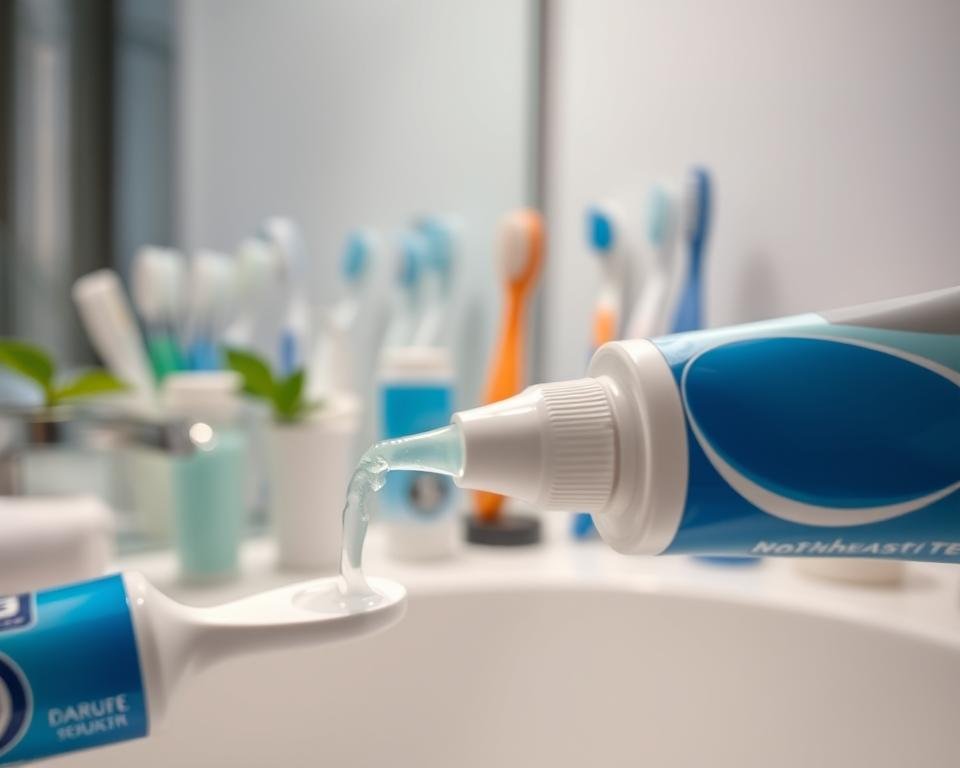You’ve been there. You mix your favorite pre-workout powder, down the brightly colored concoction 30 minutes before your gym session, and by the time you’re through your first warm-up set, it’s happening. The beads of sweat are forming faster than usual. By the end of your workout, your shirt is soaked, and you feel like you’ve just run a marathon in a sauna. It leads to the inevitable question: Does pre-workout really make you sweat more?
It’s a common experience shared in locker rooms and on fitness forums worldwide. Many athletes and gym-goers swear their supplements are turning up their internal thermostat. But is this a real physiological reaction, a placebo effect, or something else entirely? At go4healthnfitness.com, we believe in a science-first approach. Our mission is to cut through the marketing hype and provide you with evidence-based answers to your most pressing wellness questions.
In this deep dive, we’ll unpack the science behind perspiration, analyze the key ingredients in your favorite pre-workout formulas, and determine once and for all if they are the true culprits behind your extra-drenched workout gear.
Key Takeaways
For those who need the fast facts, here’s what the science says:
- Yes, pre-workouts can make you sweat more, but the relationship is often indirect. The primary driver is an increase in workout intensity and duration, which the supplement facilitates.
- The main ingredient responsible for a direct effect on body temperature is caffeine. It stimulates a process called thermogenesis, increasing your body’s heat production.
- Sensations from other ingredients, like the tingling from beta-alanine or the skin flushing from niacin, are often mistaken for increased body heat but are caused by different physiological mechanisms.
- Increased sweating does not automatically equal a better workout or greater fat loss. Sweat is your body’s cooling system, and its volume is influenced by many factors, including genetics, hydration, and ambient temperature.
- The most significant effect of a pre-workout supplement is its ability to help you push harder and longer, which naturally generates more metabolic heat and, consequently, more sweat.
- Dynamic Flavors: Choose from three tantalizing flavors – blue raspberry, peach mango, and fruit punch – to transform you…
- Potent Energy Boost: Each serving packs a punch with 200 mg of caffeine, providing a surge of energy to fuel your workou…
- Performance-Optimizing Ingredients: Formulated with a strategic blend of beta-alanine, taurine, l-citrulline, and n-acet…
- NOW WITH NITROSIGINE FOR EVEN GREATER PUMPS!
- This new formula boasts Nitrosigine as its only source of Arginine. Nitrosigine has been shown to inhibit the enzyme res…
- Nitrosigine has scientifically validated that benefits last up to 6 hours after dosing.
- C4 PRE WORKOUT POWDER FOR MEN & WOMEN – America’s Number 1 Selling Pre-Workout Brand has been trusted since 2011 with ov…
- BUILD MUSCLE & STRENGTH – Formulated with a super creatine compound to support strength and performance. Whether you’re …
- INCREASE REP COUNT – C4 pre workout for women and men is formulated with CarnoSyn Beta-Alanine, a premium clinically stu…
The Body’s Natural Air Conditioner: Why We Sweat 💧
Before we dissect your supplement tub, let’s quickly revisit the fundamentals of perspiration. Sweating is a critical biological function designed for one primary purpose: thermoregulation, or controlling your body temperature.
When you exercise, your muscles contract, consume energy, and generate a significant amount of metabolic heat. This heat raises your core body temperature. If left unchecked, this could lead to dangerous overheating. To prevent this, your brain’s hypothalamus—the body’s internal thermostat—kicks into gear. It signals millions of eccrine sweat glands located all over your skin to release a mixture of water, salt, and other trace substances. As this sweat evaporates from your skin’s surface, it carries heat away, effectively cooling you down.
The more intense your workout, the more heat you generate, and the more you need to sweat to maintain a safe internal temperature. This is the baseline. Now, let’s see how pre-workout ingredients throw a wrench in the works.
The Real Culprits: Which Pre-Workout Ingredients Turn Up the Heat? 🔥
The label on your pre-workout supplement is a cocktail of compounds, each with a specific purpose. While some are there to enhance blood flow or focus, others have a more direct impact on your body’s energy systems and heat production.
Caffeine: The Master of Thermogenesis ☕
If there’s one ingredient that can be crowned king of the sweat-inducers, it’s caffeine. This powerful stimulant is the cornerstone of most pre-workout formulas, and its effects go far beyond simply making you feel more awake.
Caffeine’s primary influence on sweating is through thermogenesis—literally, the production of heat. Here’s how it works:
- Stimulation of the Central Nervous System (CNS): Caffeine blocks adenosine, a neurotransmitter that makes you feel tired, while increasing the activity of adrenaline and norepinephrine. This hormonal surge puts your body in a “fight or flight” state.
- Increased Metabolic Rate: This state of high alert ramps up your basal metabolic rate (BMR). Your body starts burning more calories for energy, even at rest. This energy-burning process generates heat.
- Enhanced Performance: Most importantly, caffeine has been extensively proven to reduce perceived exertion and increase power output during exercise. You can lift heavier, run faster, and perform more reps.
As noted in a landmark study published in the Journal of the International Society of Sports Nutrition, caffeine ingestion can significantly enhance various types of athletic performance. This increased work capacity means you generate far more metabolic heat than you would without the supplement, forcing your body to sweat more to compensate.
Expert Insight: Dr. Alistair Finch, a sports nutritionist and exercise physiologist, explains: “Caffeine is a potent thermogenic agent. It effectively tells your body to unlock and use more energy, which is a heat-producing process. When you combine that with the fact that it allows you to push your physical limits, you’ve created a perfect storm for increased perspiration. The sweat isn’t just from the caffeine itself; it’s from the supercharged workout the caffeine enables.”
Beta-Alanine: The Tingle vs. The Sweat ⚡
Anyone who has taken a potent pre-workout is familiar with beta-alanine. It’s the ingredient behind paresthesia—a harmless but sometimes alarming tingling or itching sensation, usually felt on the face, neck, and hands.
Many people associate this tingling with their body “powering up” or getting hotter, but this sensation has nothing to do with thermogenesis. Paresthesia occurs because beta-alanine binds to specific nerve receptors in the skin.
So, does it make you sweat? Only indirectly. Beta-alanine’s real job is to increase muscle carnosine levels. Carnosine helps buffer the acid that builds up in your muscles during high-intensity exercise, which is what causes that burning sensation and muscular fatigue. By delaying the burn, you can squeeze out more reps or maintain a higher intensity for longer. The result? More work, more heat, and more sweat. The tingle is just a side effect; the increased sweat is a consequence of enhanced performance.
Niacin (Vitamin B3): The Flush Deception
Some pre-workouts include high doses of niacin, another ingredient notorious for its sensory side effect: the “niacin flush.” This reaction causes the skin to turn red, feel warm, and itch.
This flush is caused by vasodilation, the widening of blood vessels close to the skin’s surface. While it can feel like you’re overheating, it’s a superficial effect and is different from a core temperature increase. The niacin flush does not significantly contribute to thermogenesis in the way caffeine does. It’s a classic case where a feeling of heat is confused with the physiological process that leads to sweating.
Ingredient Breakdown: Sweat-Inducers vs. Sensation-Causers
To make it crystal clear, here’s a table breaking down the roles of common pre-workout ingredients.
| Ingredient | Primary Mechanism | Direct Effect on Sweat? | Indirect Effect on Sweat? |
|---|---|---|---|
| Caffeine | CNS stimulation & thermogenesis | Yes (Increases heat) | Yes (Enables higher workout intensity) |
| Beta-Alanine | Increases muscle carnosine to buffer acid | No | Yes (Allows for more work, which generates more heat) |
| Niacin (B3) | Causes vasodilation (widening of blood vessels) | No | No (The “flush” feels hot but doesn’t raise core temp) |
| Citrulline Malate | Boosts nitric oxide for improved blood flow (“pump”) | No | Yes (Better endurance and performance lead to more heat) |
| L-Tyrosine | Supports neurotransmitter production for better focus | No | Yes (Improved focus can lead to higher-quality, intense work) |
As the table shows, most ingredients contribute to sweating indirectly by helping you get more out of your workout. The only true direct thermogenic powerhouse in most standard formulas is caffeine.
Myth-Busting: Does More Sweat Equal a Better Workout? 🤔
This is one of the most persistent myths in fitness culture. We’re conditioned to see a sweat-drenched shirt as a badge of honor—a sign of hard work and accomplishment. While it can be an indicator of effort, it’s not the whole story.
Sweat rate is highly individual. It’s influenced by:
- Genetics: Some people are simply genetically predisposed to sweat more than others.
- Fitness Level: As you become more aerobically fit, your body becomes more efficient at cooling itself and may start sweating earlier in the workout.
- Acclimatization: Your body adapts to the climate you live and train in.
- Hydration Status: A well-hydrated body can sweat more effectively than a dehydrated one.
Relying on sweat as your sole metric for workout quality is a mistake. Furthermore, it’s crucial to remember that sweat is water loss, not fat loss. Any weight you lose from sweating is temporary and will be regained as soon as you rehydrate. In fact, excessive sweating, especially when amplified by supplements that make you sweat, can pose a risk of dehydration, which can impair performance and be dangerous.
- Dynamic Flavors: Choose from three tantalizing flavors – blue raspberry, peach mango, and fruit punch – to transform you…
- Potent Energy Boost: Each serving packs a punch with 200 mg of caffeine, providing a surge of energy to fuel your workou…
- Performance-Optimizing Ingredients: Formulated with a strategic blend of beta-alanine, taurine, l-citrulline, and n-acet…
- NOW WITH NITROSIGINE FOR EVEN GREATER PUMPS!
- This new formula boasts Nitrosigine as its only source of Arginine. Nitrosigine has been shown to inhibit the enzyme res…
- Nitrosigine has scientifically validated that benefits last up to 6 hours after dosing.
- C4 PRE WORKOUT POWDER FOR MEN & WOMEN – America’s Number 1 Selling Pre-Workout Brand has been trusted since 2011 with ov…
- BUILD MUSCLE & STRENGTH – Formulated with a super creatine compound to support strength and performance. Whether you’re …
- INCREASE REP COUNT – C4 pre workout for women and men is formulated with CarnoSyn Beta-Alanine, a premium clinically stu…
The Final Verdict: The Answer to the Sweaty Question
So, after examining the evidence, does pre-workout make you sweat more?
The answer is a definitive yes, but with important qualifications. Pre-workout supplements amplify perspiration through a two-pronged attack:
- Directly: Through thermogenic ingredients, primarily caffeine, which increase your body’s baseline heat production.
- Indirectly: By enabling you to increase your workout intensity and volume, which is the single biggest factor in how much heat your body generates during exercise.
The tingling, flushing, and pumped-up sensations are just side effects of other ingredients doing their jobs. The real reason for that extra sweat is that your pre-workout is helping you work harder than you otherwise could.
Instead of measuring your success in ounces of sweat, focus on performance metrics: Are you lifting more weight? Completing more reps? Feeling more focused and energized? That’s the true measure of a supplement’s effectiveness. The sweat is just proof that you’re putting in the work.
Frequently Asked Questions (FAQ)
1. Why do I sweat more with some pre-workouts than others? This usually comes down to the dosage of key ingredients, especially caffeine. A pre-workout with 300mg of caffeine will likely have a much stronger thermogenic and performance-enhancing effect than one with 150mg, leading to more sweat.
2. Is sweating from a pre-workout dangerous? For most healthy individuals, it is not dangerous, but it does heighten the need for proper hydration. Increased sweating means increased fluid loss. Be sure to drink plenty of water before, during, and after your workout to avoid dehydration, which can lead to dizziness, cramping, and a drop in performance.
3. Can I stop the tingling feeling from beta-alanine? The tingling (paresthesia) is a dose-dependent side effect. You can minimize it by taking smaller doses of beta-alanine throughout the day instead of one large dose pre-workout. Some formulas also use “sustained-release” versions of the ingredient to prevent the sensation.
4. Will I lose more weight if my pre-workout makes me sweat a lot? No. The weight lost through sweat is water weight, which is quickly regained upon rehydration. True weight loss comes from burning more calories than you consume over time. While a pre-workout can help you burn more calories by enabling a more intense workout, the sweat itself is not a mechanism for fat loss.
References
- Guest, N. S., VanDusseldorp, T. A., Nelson, M. T., Grgic, J., Schoenfeld, B. J., Jenkins, N. D., … & Campbell, B. I. (2021). International society of sports nutrition position stand: caffeine and exercise performance. Journal of the International Society of Sports Nutrition, 18(1), 1.
- Trexler, E. T., Smith-Ryan, A. E., Stout, J. R., Hoffman, J. R., Wilborn, C. D., Sale, C., … & Antonio, J. (2015). International society of sports nutrition position stand: Beta-Alanine. Journal of the International Society of Sports Nutrition, 12(1), 30.
- National Institutes of Health (NIH), Office of Dietary Supplements. (2021). Dietary Supplement Fact Sheet: Niacin.
- Kenny, G. P., & Jay, O. (2019). Thermoregulation during exercise in the heat. Goldman-Cecil Medicine, 1, 697-702.







